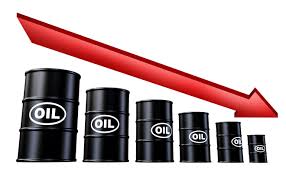
Both Asian stock markets and oil prices were broadly lower on Monday afternoon after increasing tensions in Hong Kong prompted a sudden selloff and increased concerns about the future of the global economy. Clashes in Hong Kong have been plaguing the region for months, but the tension intensified on Monday morning after police shot two protesters.
Oil futures rose 1.9 percent last week but erased much of these gains during Monday’s trade. U.S. WTI futures dropped 0.84 percent to $56.76 per barrel as of 1:26 p.m. HK/SIN, while Brent crude futures slumped -.88 percent to $61.96 per barrel. Oil prices have surged nearly 9 percent since the beginning of October, boosted mostly on optimism for a trade deal between the U.S. and China, but Monday’s declines reminded traders that oil prices remain fragile and are vulnerable to swift movements based on political sentiment and concerns.
Asian Stock Markets Stumble
Benchmark indexes in Asia were broadly lower on Monday afternoon, with the exception of Australia’s ASX 200 which managed to gain 0.61 percent. Hong Kong’s Hang Seng Index saw the steepest declines, trading down 2.25 percent. China’s benchmarks also saw significant losses, with the Shanghai Composite down 1.31 percent and the Shenzhen Composite down 1.79 percent.
On Friday, ratings agency Moody’s Investor Service changed its outlook for India to ‘negative’ from ‘stable’, citing government and policy ineffectiveness as well as increased debt burdens on the country. In early 2019, many financial institutions had predicted that India’s economy would grow more than 7 percent this year. The projections soured, however, and India’s economy is now expected to grow between 5.8 percent and 6.5 percent. In Q2 2019, India’s economy grew at a rate of 5 percent year-on-year, its slowest pace in six years. Interestingly, the problems India faces are not directly related to global economic tensions that have been building in the past 18 months, but to the demonetization of the currency nots Rs 500 and Rs 1000 three years ago. At the time, Prime Minister Manmohan Singh had warned that this action could decrease India’s GDP by two percent – and it seems that his prediction was accurate.
